This is the text of a presentation given to the Sydney Traditionalist Forum on 5 December 2020 by Dr. Frank Salter, as part of the Forum’s “Quarterly Inquiry Series”.
♣
Let me begin by acknowledging our nation:
I acknowledge the British and other European philosophers, explorers and pioneers who predicted the existence of a great South Land, then discovered, mapped, named, settled, and developed it to create the historic Australian nation. Long live Australia!
Sir Henry Parkes (1815-1896) – the Father of Australian Federation – was the son of an English farmer in Coventry who completed his apprenticeship to become a turner of bone and ivory. Though largely self-educated, in his spare time he showed a flair for poetry. In 1839 at age 24 he and his wife emigrated to Australia, where he found his way to journalism and politics. Parkes was a “radical patriot”, the organizing secretary of the tradesmen’s committee who agitated for universal suffrage and land reform. It was during this period that Parkes joined the Australian League, which advocated amalgamating the colonies into a Great Federal Republic. The League also campaigned for ending transportation and imperial patronage. Parkes opposed aristocracy in Australia, in particular the policies of William Charles Wentworth. But he was not a communist or anarchist. He criticised the excesses of the 1848 uprisings in Europe. Parkes served as premier of the colony of NSW eight times between 1872 and 1891.
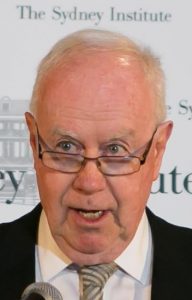
Paul Kelly, Australian journalist.
While premier of NSW he initiated the conventions that negotiated and drafted the federation of the colonies in 1901, though he did not live to see that momentous event. His vision of a federal Australian state consisted of two frames. One was Australia as a New Britannia, a British ethnic nation that would share in the identity and history of Britain and its dominions. The second was compatible with the first, but different. Parkes and the other federalists wanted Australia to retain the advances in liberal democracy of which they were proud, not just rule of law and the division of powers, but an expanding franchise and a flatter class structure than Britain’s. Compatible with the liberal sentiments was dignified wages, an aspiration that attracted the support of the rising labour movement, to complete what Paul Kelly calls the Australian Settlement.
All three premises have been subsequently confirmed, either scientifically or through experience. Let’s begin with wages.
I
Dignified Wages.
The early Labour movement’s contention that non-European immigration depresses wages has been confirmed by the experience of the United States and Australia since traditional restrictions began to be lifted. The original research was done in the U.S. by George Borjas at Harvard University. By the 1990s Borjas had shown that contrary to claims by immigration enthusiasts, mass immigration reduces wages due to excess supply. Immigration does benefit some interests, especially employers and the building industry.1 Skilled immigrants can help the economy as a whole by overcoming bottlenecks. Furthermore, they integrate more quickly into the economy and draw less on government support. But it is also true that they reduce the wages of native skilled workers and undercut the motivation to train native workers. Skilled immigration actually contributes to the de-skilling of the economy.

George Jesus Borjas, Prof. of economics, Harvard University.
After immigration to the U.S. was slashed by the 1921 and 1924 restriction acts, low-wage immigrant labour was replaced by a surge in capital investment in manufacturing equipment.2 That is old knowledge. In Australia, Borjas’s findings have been confirmed by Judith Sloane, an economist and journalist. Sloane has criticised the pro-immigrant rhetoric about “growing the economy” by pointing out that the relevant metric is per capita income, not gross income. Governments and big business want tax revenues and profits to grow ever-larger and therefore seek to increase the population. But an individual is affected by his slice of the pie, which is narrowed by mass immigration. Australians are also suffering from the congestion and culture shock afflicting the large cities.
The main beneficiaries of non-Western immigration to Western economies are the immigrants themselves, not the receiving nation. Overall wages have stagnated in America and Australia since the introduction of large-scale non-white immigration.
II
Ethnic Nationalism.
The ethnic component of Parkes’s nationalism is well known. In his great 1890 speech before the first Constitutional Convention, he spoke of “the crimson thread of kinship [that] runs through us all”. He made it clear that he meant British ethnicity though the term “ethnicity” had not yet been invented. Parkes continued: “Even the native-born Australians are Britons, as much as the men born within cities of London and Glasgow. We know the value of their British origin. We know that we represent a race.” Furthermore, “[our] population, all of British origin, many and many thousands unified to the soil by ties of birth, by ties of parentage, by ties of friendship and love, as well as by ties of marriage and ties of children […]”
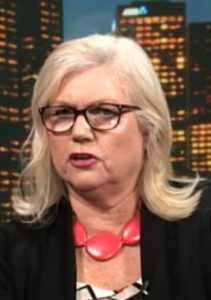
Judith Sloane, Australian economist, Fellow at Melbourne Institute of Applied Economic and Social Research of the University of Melbourne.
Other speeches at the 1990 convention also emphasised shared British identity as a strong facilitator of federation. This claim of ethnic kinship might have been mistaken. After all, genetic analysis was primitive in 1890. Moreover, it is a mainstream leftist opinion in the social sciences that race and ethnicity have no genetic existence beyond skin colour. Another possibility is that ethnic descent, though detectable in the genes, is vestigial. That is also a mainstream academic position originated by Harvard geneticist and Marxist Richard Lewontin in the 1970s. In fact, modern genetics shows that ethnic genetic kinship can be substantial. Many biologists contributed to this knowledge, and here I mention just three: English ethologist William Hamilton, the Italian population geneticist Luigi Cavalli Sforza, and American anthropological geneticist Henry Harpending.
Routine genetic tests, for example that sold by Ancestry.com, reveal customers’ ancestral populations and their proportions of the genome. Ethnic kinship is almost as close as that between grandparent and grandchild when comparing Europeans and Chinese. It is even greater when contrasting Europeans and sub-Saharan Africans. Because ethnic groups can be large populations, ethnic kinship aggregates to very high numbers. In the context of the Han people of China, Australia’s white population of about 19.5 million is the equivalent of a super family greater than 8.5 million children.3 In the context of sub-Saharan Africa, our ethnic family swells to the equivalent of about 12 million children.4 That precious reproductive interest is shared by every individual white Australian.
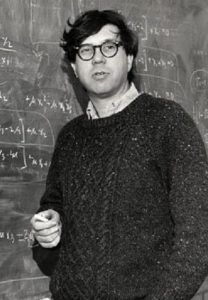
Richard Charles Lewontin, American evolutionary biologist, mathematician and geneticist.
The abstractness of these concepts can lead some to think that genetic continuity doesn’t matter. But ask yourselves the following. Men, is it reasonable to be angry to discover you are being cuckolded by your wife? Women, should you care if your baby is switched at the hospital? What’s the problem? Sex is sex and babies are babies, according to mainstream wisdom. Another fallacy is to evaluate ethnic interests as always taking precedence over family interests. That is an easy mistake to make, because millions of children are obviously more than any marriage can produce. It is an error that leads to collectivism and fascism, which I shall discuss presently.
Despite such caveats, Parkes’s metaphor of the “crimson thread” seems inadequate to grasp the enormity of ethnic kinship. A better metaphor might be “rivers of blood”, though I think that is already in use. No wonder ethnicity continues to affect social behaviour around the world despite relentless indoctrination in the West denying its importance.
III
Liberal Nationalism
Less well known is Parkes’s liberal convictions. The content of his writing on the national question reveals respect for the great liberal philosopher, John Stuart Mill.5
Liberal nationalism takes an Olympian perspective on nations, noting that they possess significant advantages over other forms of government. Here I take “liberalism” to have its original meaning current in Parkes’s day – rational approaches to national policy that emphasise individual rights and individual conscience. Anglo liberals of that period could not imagine their countries being ethnically transformed. The issue of the day was individual rights and thus the British political inheritance – rule of law, separation of powers, representative democracy, and institutional pluralism.
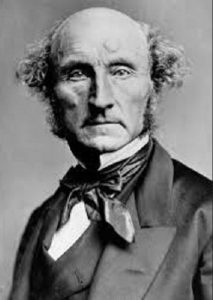
John Stuart Mill (b. 1806 d. 1873)
In a publication of 1861, Considerations on Representative Government, Mill posited a connection between democracy and ethnic homogeneity. His theory became popular in literate circles well before the constitutional conventions of the 1890s and remained influential into the twentieth century. His main policy conclusion was that social cohesion necessitates assimilation, and therefore ethnically selective immigration. Mill posited a connection between national identity, homogeneity and democratic values. He concluded:
“Where the sentiment of nationality exists in any force, there is a prima facie case for uniting all the members of the nationality under the same government, and a government to themselves apart […] One hardly knows what any division of the human race should be free to do if not to determine with which of the various collective bodies they choose to associate themselves.”6
Elsewhere Mill concluded that “the boundaries of governments should coincide in the main with those of nationalities”.7 Far ahead of his time, Mill argued that representative institutions are “next to impossible in a country made up of different nationalities”. Democracy depends on citizens being educated and cohesive. As Mill thought that ethnic diversity reduced social cohesion, he concluded that diversity should be minimised. His argument concerned ethnicity, of which race is only one component. “The sympathies available for the purpose are those of race, language, religion, and, above all, of political institutions, as conducing most to a feeling of identity of political interest.”8
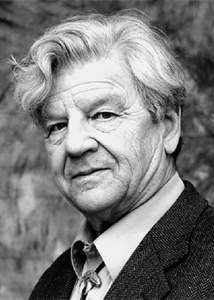
Irenäus Eibl-Eibesfeldt, Austrian ethologist.
Here Mill anticipated by more than a century the biosocial science of ethnicity, especially that of the ethologist Irenäus Eibl-Eibesfeldt in his 1970 book, Liebe und Hass (Love and Hate) and anthropologist Pierre van den Berghe in his 1981 book, The Ethnic Phenomenon. Their theories described ethnic markers that elicit in-group recognition and solidarity. This idea was applied to the history of ethnicity and nationalism by Anthony D. Smith, a central figure in the London school of ethnic studies. His 1986 monograph, The Ethnic Origins of Nations, was a blow against the Marxist approach to ethnicity then and now dominant in the universities. The evolutionary psychologist Philippe Rushton showed that Smith’s theory was compatible with biosocial science.9
Historian Henry Reynolds has called Mill’s theory “liberal nationalism”, meant as a damning epithet because Mill’s analysis favoured majorities as well as minorities.10 Indeed, many Australian leaders, including Parkes, were convinced by Mill’s argument and used it to create policies that perpetuated and built the modern Anglo nation of which Reynolds disapproves.
Should Parkes and other leaders have accepted Mill’s theory? Did the theory deserve to have such influence on immigration law? One might guess not, because his theory was conceptually inadequate and empirically weak. But again, his core ideas have been confirmed. Cross-national research in economics, sociology, political science and anthropology indicates that, other factors being equal, more ethnically homogeneous societies are better able to build public goods, are more democratic, less corrupt, have higher productivity and less inequality, are more trusting and care more for the disadvantaged, develop social and economic capital faster, are more resistant to external shocks, and are better global citizens, for example by giving more foreign aid.
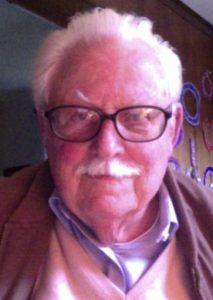
Pierre van den Berghe, Prof. Emeritus of sociology and anthropology at the University of Washington.
There is further support for Mill’s theory. Global comparison of societies around the world finds that democracy is relatively unstable in societies with substantial degrees of economic inequality, which ethnic diversity promotes.11 Numerous studies also find that public altruism (“sympathy” in Mill’s writing) and thus social cohesion decline as ethnic diversity rises. Diversity is the second best predictor of civil war after weakness of democracy12 Mill’s and Parkes’s concern with diversity is vindicated by extensive research, which helps explain the durability of the assimilation paradigm.
Democracy is diminished in other ways by rising ethno-religious diversity. Race relations boards and anti-free speech legislation such as the Racial Discrimination Act 1975 (Cth) were established early in Australia’s experiment with unrestricted immigration. From the start it was obvious that growing ethnic diversity caused social tensions, as predicted by Arthur Calwell, Labor leader and the architect of post-WWII immigration.13 The bottom line? It’s just good government to keep diversity low and pursuant to that to preserve the majority ethnic group’s control of immigration.
Strictly speaking, liberal nationalism need promote no national sentiment at all, only policies for making society cohere within the frame of representative democracy and individual liberty. The policies that yield this outcome are ethnically selective but not necessarily the motives for advancing those policies. The starting point of Mill’s analysis of nationality is not loyalty to a particular tribe but universals of social behaviour, conflict avoidance, and civil liberties, especially freedom of speech and association. These liberal goals imply nationalist policies when viewed through the lens of reason. Liberal nationalists see identity as a means rather than as an end. They seek the universal public goods of community and social cohesion and the multiple benefits that result.
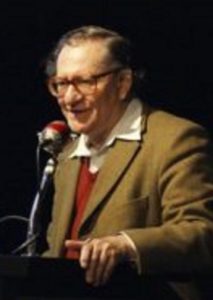
Anthony David Stephen Smith, Prof. Emeritus of Nationalism and Ethnicity at the London School of Economics.
Another strength of liberal nationalism is its recognition of plural interests, most importantly the family. From a biological perspective, liberal nationalism has the great advantage that it provides freedom to individuals to make families and raise children in their religious tradition, the centrepiece of the human life history strategy and building-block of society. Liberalism protects investment in family from interference by the state.
In contrast to this, ethnic nationalism has the advantage that it facilitates an individual’s investment in ethnic kin, who collectively carry many more copies of his genes than does his family. Should family or ethny be prioritised? Again I think Parkes got the balance right. He praised the “crimson thread” of ethnicity but also emphasised love of family and homeland. He recognised a number of ties, of which ethnicity is just one.
That is prudent because investment in ethnic kin carries risks due to reliance on culture, which is more prone to error than the instinct-laden bonds of family. In his book, Imagined Communities, the Marxist historian Benedict Anderson argued convincingly that national communities are perceived indirectly through cultural channels, such as stories, books, films, press reports, memorials, and so on.14 The same goes for events that are perceived to enhance or threaten the nation. The sense of fellowship can be extended through cultural devices to elicit bonding with hypothetical kin. Likewise, the realm of antagonisms, of distrust, hatred and combat, can be hugely inflated in scope and intensity in the ethnocentric mind. Anderson concluded that nations are imagined, when in fact they are real but have images that can be manipulated by those who influence culture.
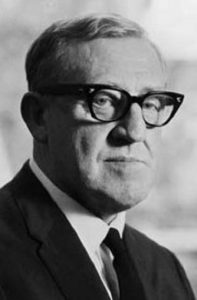
Arthur Calwell, former Leader of the Australian Labor Party.
This reliance on culture makes it risky to show solidarity with a whole population. Ethnic solidarity can easily become costly to the family because of leadership errors and elite free-riders. The prudent strategy is not fascist obsession with the ethny but a conservative balance of genetic interests, with family at the heart. The nation should come after family and community except in times of dire emergency. It is relevant that classical liberalism minimises warfare.
A related advantage of a hybrid liberal-ethnic nationalism is that the dispassionate liberal stance is better placed to acknowledge excesses of identity politics, while the ethnic stance is sensitive to excessive individualism; insistence on identity would be a check against a renegade liberal state.
Examples of convergence between liberalism and ethnic nationalism are not hard to find. Hans-Hermann Hoppe’s recent enunciation of libertarianism overlaps classical liberalism in emphasising the need for freedom from coercion and conflict. Hoppe concludes that immigration to Western societies should mainly consist of people descended from ethnic Europeans – “Western, white candidate immigrants” – not because of any ethnic preference but in the interests of social harmony, neighbourliness, and economic equity.15 At the same time Hoppe criticised the goal of white solidarity.16
Mill’s type of nationalism is supported by the fact that criticisms of ethno-religious diversity have come from very different perspectives. In the early noughties colleagues and I hypothesised – and found – numerous costs of ethnic diversity in the social, political and economic spheres. We derived our hypotheses from biosocial, especially evolutionary, theory. Around the same time the progressive intellectual David Goodhart17 in London published his notorious article – notorious to fellow Leftists – “Too Diverse”, in which he reached the same general conclusion. Goodhart calls himself “post-liberal”. He is a Remainer and shows little attachment to English identity. He is repelled by the very notion of ethnic attachment. But he sees that diversity degrades social cohesion and public altruism and therefore hurts the welfare state. He therefore advocates slowing immigration and criticises globalist elites.18
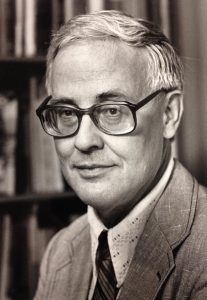
Benedict Anderson, Chinese-born Anglo-Irish political scientist and historian.
Liberal nationalism can also debunk much of the nonsense spoken in defence of open borders. Consider ex-prime minister of Australia John Howard’s argument in favour of admitting large numbers of non-European immigrants. This has become mainstream among conservatives with access to media platforms such as Andrew Bolt, Tony Abbott and Greg Sheridan. Howard maintains that Australia is not multicultural but that it is multi-racial. We are such a harmonious society because people come from around the world and quickly adopt Australian values. It is those values (mateship and democracy, perhaps) that bind us together. Howard and likeminded conservatives are proud of the non-discriminatory immigration policy that is rapidly consigning white Australia to minority status, though not sufficiently confident to put this policy to the vote.
Howard and company tacitly agree with the Marxist view of ethnicity and the irrelevance of human biology. But this concession is no guarantee of immunity. In the 2007 elections Howard was voted out of parliament by Chinese and Korean electors responding to an explicitly racial appeal from the Rudd-Labor campaign. For them multi-racialism meant particular kinds of mateship and democracy, namely the right for minorities to assert their tribal interests without criticism, ever. People bound together by their crimson threads of kinship mocked and kicked aside someone who had cut his own.
The key question, one apparently that never occurred to Howard – or Fraser, or Hawke, or Keating et cetera – concerns loyalty. How many of those Chinese electors who dispensed with Howard on the basis of ethnic motivation, feel they belong to the greater Chinese nation that is mocking and attempting to kick aside white Australia as a whole? Mr. Howard’s notions would have been dismissed at their first airing in a society governed by rational discourse, where the social sciences and humanities had not been hijacked by influences allergic to truth.

Hans-Hermann Hoppe, German libertarian thinker and author.
Despite its advantages, Parkes’s liberal-ethnic nationalism has failed, and done so spectacularly. His precious Anglo nation is on the skids, well along the path to becoming a minority, and a harried, persecuted one. I am not aware of any complete theory that explains why this has happened. So let me explore some likely causes. One is contradictions between Parkes’s two nationalisms. [— This paragraph was emphasise by Dr. Salter during his presentation (eds.)]
Ethnic nationalism typically involves a powerful state that favours the founding ethny. But this can work to suppress individual liberties and harm families, for example by sending sons off to die in unnecessary wars, by driving the founding religion out of public life, and by overdoing the redistribution of family incomes. On the ethnic side, it makes sense for identity groups to influence or capture the state and turn its incomparable power to securing their interests. That is the path towards the nation state followed by emerging nations especially after the French Revolution. The process disadvantages minorities and dissidents. In recent decades the same path has been trodden by minorities in diverse societies. They have allied with globalist elites to steer the state towards privileging them against the founding ethnic group. That is why all multiculturalist states suppress majority ethnic identity and open their borders to immigrants from non-majority cultures. This aggressive multiculturalism is evident in Anglosphere countries.
Liberalism has its limits. Universalism risks drifting too far from local interests. Liberal nationalism begins to lose efficacy as an ethnic strategy when deprived of information, and can become a feel-good blend of fairness, privacy and equality. For example, Hoppe’s rejection of ethnic solidarity misses the fact of ethnic kinship, which leads him into inconsistency because he does not criticise family solidarity. Why should we care about one set of kinship bonds but condemn another?
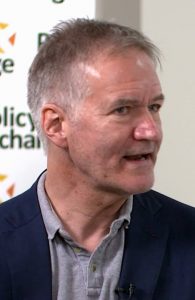
David Goodhart, British journalist and author.
One problem with liberal nationalism is its cold abstractness, its etic over emic voice. One might prove theoretically that genetic survival depends on ethnic continuity; that it is adaptive and natural for people to care about their ethnic and cultural groups; that most people want to be part of the majority, a situation only possible in a world of nation states; that a moderate and rational nationalism should acknowledge ethnic sentiment as a matter of free choice and dignity, and so on. One might be intellectually convinced along these lines yet fail to be moved emotionally because they do not cry out with the voice of the people. Too much head and not enough heart.
Liberalism’s cold-bloodedness also reduces its ability to defend national interests in times of war, whether cultural or physical. For that it needs heroes who give their all. The supply of heroes will be limited if all are domesticated souls devoted to their families and the shire. It is doubtful that any human is able to portion-out his efforts in an optimal way, recognising emerging needs and responding appropriately. Realistically, that requires a division of labour, with some diffuse in their efforts, most focused on family, but some heroes focused on the population. These types need to work together, such that leadership is exercised by one or the other type in different circumstances.
For these reasons it is prudent for ethnic nationalists to take their liberal cousins with a grain of salt. After all, to reiterate, most liberal states are failing to prevent, or are actually promoting, the swamping of their founding peoples.
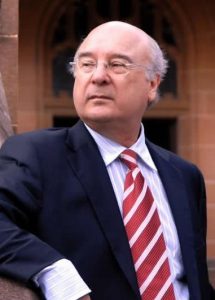
Prof. Keith Windschuttle, author and editor of Quadrant Magazine.
Why are the views on the national question enunciated by Parkes and other leaders of the time so resolutely repudiated by the political class of today? The premises of their positions are generally sound. Those familiar with my work will guess my answer to that question: the collapse in reason we have seen since the 1960s has been caused by the capture of our universities and much of the media by the intolerant Left. It began a century ago with a campaign to expel human nature and biology from anthropology, sociology and other social sciences and humanities.
A contributing cause has been forgetfulness. The founding fathers failed to perpetuate public memory of the logic of the White Australia Policy. Even before the advent of unpatriotic radicalism, the first history of that Policy, published in 1923, failed to record the essential rationale of the policy. Myra Willard’s influential text, History of the White Australia Policy to 1920, did not quote Parkes’s use of the term “crimson thread” or mention John Stuart Mill.19 However, the connection was made by Marxist historian Phil Griffiths in 2002, and by historian Ann Curthoys in 2003 as recorded by Keith Windschuttle in his book, The White Australia Policy (2004).20
IV
Fighting Back.
How might we restore liberal-ethnic nationalism? A core strategy of the culture wars is to undercut the premises of the opposition. If prudent, rational discourse had to be compromised to open the way for massive indiscriminate immigration and to install a minority-dominated ethnic hierarchy, then it is sensible to promote truth in public discourse. That will involve dismantling or bypassing political censorship, such as found in the mainstream media, big social-media companies, and the so-called Human Rights Commission and its enabling legislation.
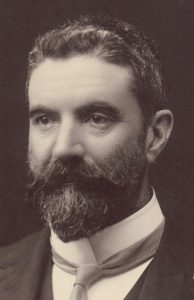
Alfred Deakin, Second Prime Minister of Australia.
But even if Mill-style liberalism were restored, it would be insufficient to correct the situation. An identitarian component must be introduced and protected. Perhaps constitutional reform is needed to give the historic nation robust legal protection? This is the approach adopted by multiculturalists in the name of their clients. Examples include demands for an anti-racism clause to be inserted in the Constitution. Another is the call for a constitutional acknowledgment that Aborigines were here first, a demand now superseded by the Indigenous Voice, a racial third chamber mandated by a proposed amendment to the Constitution.
Perhaps the appropriate response to these demands is to go beyond merely saying “No!”, and to make demands on behalf of Anglo Australians. We need to push back. An example would be calls for recognition in the Constitution that Anglos created the colonies and federation. Another would be protection against Anglophobic and anti-white and anti-Christian legislation and government decisions. Why not an Anglo Voice, with its own dedicated bureaucracy, representative chamber, and mandatory consultation by government? This might seem problematic. But it should be given serious consideration if an Aboriginal Voice is in prospect.
V
Conclusion
Whatever new scholarship unearths and whichever paths of fight-back gain traction, they will be profoundly influenced by the dual vision of the Australian nation projected by the self-taught poet, journalist and statesman, Sir Henry Parkes. Alfred Deakin, Australia’s second prime minister, wrote in his obituary:
“[T]hough not rich or versatile, his personality was massive, durable and imposing, resting upon elementary qualities of human nature elevated by a strong mind. He was cast in the mould of a great man and though he suffered from numerous pettinesses, spites and failings, he was in himself a large-brained self-educated Titan whose natural field was found in Parliament and whose resources of character and intellect enabled him in his later years to overshadow all his contemporaries.”21
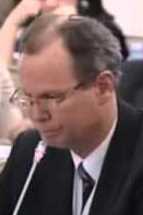
— Dr. FRANK K. SALTER received his PhD in Australia (Griffith University) but spent most of his career at the Max Planck Institute for Behavioural Physiology in Germany. Frank has taught in Britain, the US, Central and Eastern Europe. His books include Emotions in Command: Biology, Bureaucracy, and Cultural Evolution (Transaction, 2008) dealing with organisational behaviour and On Genetic Interests: Family, Ethnicity and Humanity in an Age of Mass Migration (Transaction, 2006) an evolutionary theory of ethnic solidarity and conflict. He has recently also published two volumes of his collected essays which were published in Quadrant magazine: The War on Human Nature in Australia’s Political Culture (Social Technologies, 2017) and The Aboriginal Question – Australian Racial Politics of Indigenous Recognition and Anglo De-recognition (Social Technologies, 2018). Now returned to his native Australia, Frank consults on policy and management issues.
Endnotes:
- George J. Borjas, Heaven’s Door: Immigration Policy and the American Economy (Princeton; Princeton University Press, 2001).
- John Higham, Strangers in the Land: Patterns of American Nativism: 1860-1925 (New Brunswick, NJ; Rutgers University Press, 2002 [1955]).
- Assuming 26 million Australians, 75% white in 2016 according to the Human Rights Commission. See further: Leading for Change: A Blueprint for Cultural Diversity and Inclusive Leadership Revisited (Australian Human Rights Commission, April 2018).
- Based on a formula provided by: Henry Harpending, (2002). “Kinship and Population Subdivision” Population and Environment Vol. 24 No. 2 (2002) pp 141-147, with data provided by E. Elhaik, “Empirical distributions of Fst from large-scale human polymorphism data” PLOS ONE Vol. 7 No. 11 (21 November 2012). White-Chinese Fst = 0.11; White-Sub-Saharan African Fst = 0.153. Number of child equivalents = Population x Fst x 4.
- Phillip Griffiths, “Towards White Australia: The shadow of Mill and the Spectre of Slavery in the 1880s Debates on Chinese Immigration”, Address to the 11th Biennial National Conference of the Australian Historical Association, Brisbane, Queensland (4 July 2002).
- John Stuart Mill, Representative Government. Three Essays by John Stuart Mill (London; Oxford University Press, 1960). See specifically Chapter XVI: On nationality and specifically p. 381.
- Kieth Windschuttle, The White Australia Policy (Sydney; Macleay Press 2004) pp. 18-19. Windschuttle notes that in 2003 Marxist historian Alistair Davidson saw the liberal contribution to immigration restriction, when he quoted Mill making that comment.
- John Stuart Mill, Considerations on Representative Government (South Bend, Ind.; Gateway Editions, 1972 [1861]) p. 298.
- Phillip Rushton, “Ethnic Nationalism, Evolutionary Psychology, and Genetic Similarity Theory” Nations and Nationalism No. 11 (2005) pp. 489-507.
- Henry Reynolds, (1997) “Racism and Other National Discourses” The Resurgence of Racism: Howard, Hanson and the Race Debate, G. Gray and C. Winter (eds.) (Clayton, Victoria; Monash Publications in History, 1997) pp. 36-37; cited by Griffiths (4 July 2002) p. 10.
- Tatu Vanhanen, The Limits of Democratization: Climate, Intelligence, and Resource Distribution (Augusta, Georgia; Washington Summit Publishers, 2009).
- Frank K. Salter, “Ethnic Nepotism as Heuristic: Risky Transactions and Public Altruism” Oxford Handbook of Evolutionary Psychology, R. I. M. Dunbar and L. Barrett. (eds.) (Oxford; Oxford University Press, 2007) pp. 541-551.
- Arthur Calwell, Be Just and Fear Not (Adelaide, South Australia; Rigby, 1978) p. 118.
- Benedict Anderson, Imagined Communities. Reflections on the Origin and Spread of Nationalism (London; Verso Editions, 1983).
- Hans-Hermann Hoppe, “Libertarianism and the ‘Alt-Right’”, Address to the 12th Annual Conference of the Property and Freedom Society, Bodrum, Turkey (14 to 19 September 2017), c. 45 minutes.
- Ibid., c. 42 minutes.
- Goodhart discusses his Jewish ethnicity dispassionately at: David Goodheart, “David Goodheart: How my Lehman Brothers Ancestors Shaped America” The Times (online) (15 July 2018, 12:01BST) <thetimes.co.uk> (accessed 4 December 2020); see also Goodheart’s tweet and surrounding discussion: @David_Goodheart (22 March 2018 @ 8:54PM) (accessed 4 December 2020).
- David Goodhart interviewed by Peter Whittle, New Culture Forum (online) (13 July 2019) <youtube.com> (accessed, 2 December 2020).
- See generally: Myra Willard, History of the White Australia Policy to 1920 (London; Frank Cass, 1923).
- Griffiths (4 July 2002) op. cit.; See also: Keith Windschuttle (2004) op. cit. p. 18.
- M. Martin, “Sir Henry Parkes, (1815-1896)”, Australian Dictionary of Biography, Vol 5 (Melbourne, Victoria; Melbourne University Press, 1974).
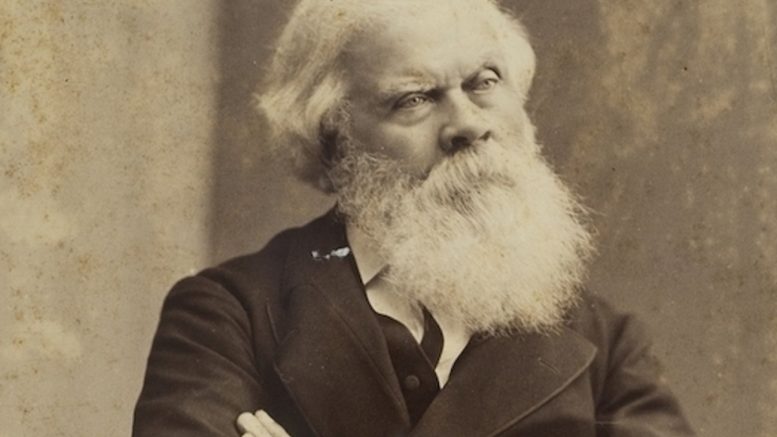


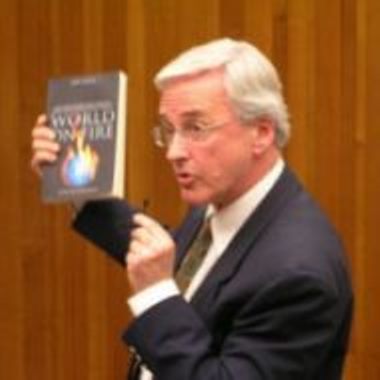

Leave a comment